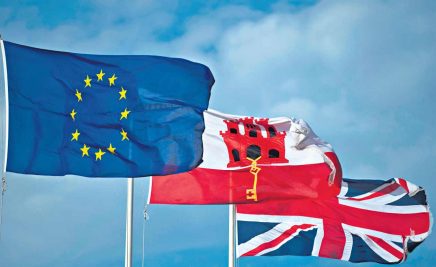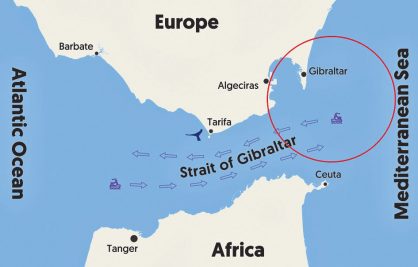Post-Brexit status of Gibraltar
Although Gibraltar is small, it is strategically important because of its location, standing only 12 miles from the north coast of Africa.
Published Date - 3 January 2021, 08:04 PM
Gibraltarians reacted with relief and caution after Spain and United Kingdom reached a deal allowing the territory to become part of Europe’s passport-free zone to keep movement fluid on its border with Spain. Let’s read more about the territory and its history
Some 15,000 people, mainly Spanish, pour into Gibraltar, a tiny British territory on the southern tip of the Iberian peninsula, from Spain every day to work, accounting for half of its workforce. Thousands more tourists go through the single checkpoint on the frontier every day, mostly day-trippers from Spain drawn in part by Gibraltar’s duty-free shopping.

Under terms of the last-minute accord announced on the eve of New Year by Gibraltar and Spain, the tiny territory would become part of the Schengen passport-free zone, which covers 26 European countries (most of the 27 EU members, along with Norway, Iceland, Switzerland and Lichtenstein).
Spain would be responsible for managing the Schengen arrangement which would be implemented by Frontex, the agency charged with protecting the EU’s external borders.Some Gibraltarians, however, expressed concern over Spain being given a role in managing the deal.
EU passport-free Schengen area
The border-free Schengen Area guarantees free movement to more than 400 million EU citizens, as well as to many non-EU nationals, businessmen, tourists or other persons legally present on the EU territory.
Why is it important
Although Gibraltar is small, it is strategically important because of its location, standing only 12 miles from the north coast of Africa.The UK has a military base there, including a port and airstrip. It was an important naval base during World War Two.
Gibraltar’s location on the Strait also gives it important access to commercial shipping, oil transportation and military-related transport.Spain has accused Gibraltar of being a corporate tax haven, allowing companies and wealthy individuals to avoid paying millions.
Why is Gibraltar British

Gibraltar, located at the bottom of Spain on the southern end of the Iberian Peninsula, was under the rule of the Moors – a group of Muslim inhabitants – from AD711 to 1462, like most of Spain.
Spain (initially Castile) controlled the territory from 1462 to 1704.In 1704 it was seized by an Anglo-Dutch force from Spain before being ceded to Great Britain in 1713 and has remained a UK territory ever since.Totalling 2.3-sq-mile (5.9 sq-km) in land mass, the territory is dominated by the 1,300ft high (397m) limestone Rock of Gibraltar.
Spain’s opinion
Spain believes Gibraltar was taken in the context of a Spanish dispute over who should inherit the crown.The UK notes Gibraltar was ceded by Spain in the Treaty of Utrecht and points to the fact it has occupied the land for longer.Both countries cite UN principles as supporting their claims.
Gibraltar – a territory with a population of 32,000 – believes it has the right of self determination – something Spain disputes. Gibraltarians are British citizens and rejected by 99% to 1% the idea of the UK sharing sovereignty with Spain in a vote in 2002 and in a previous referendum in 1967.
Now you can get handpicked stories from Telangana Today on Telegram everyday. Click the link to subscribe.
Click to follow Telangana Today Facebook page and Twitter .